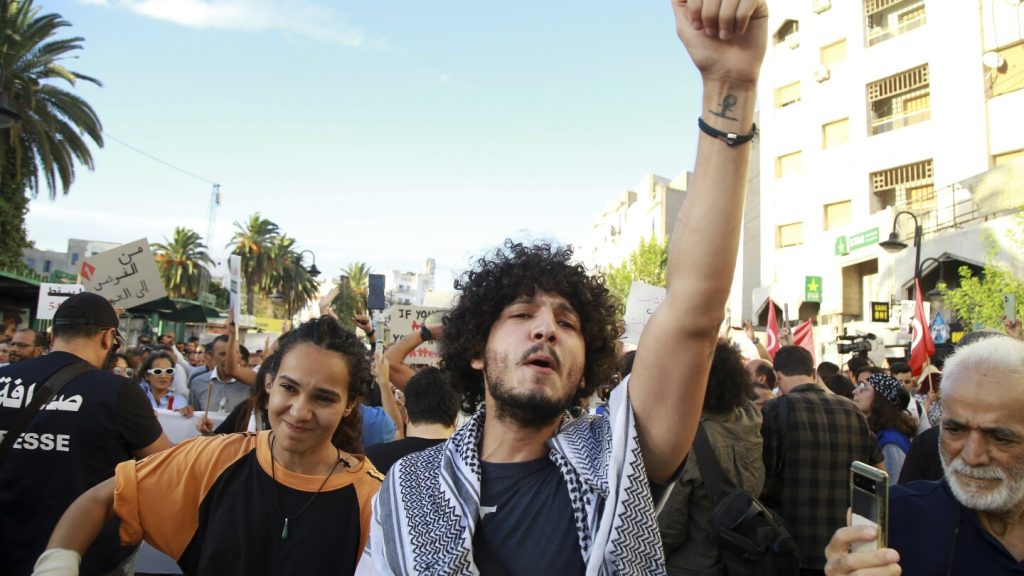The official start of the presidential campaign season in Tunisia began on Saturday, with protesters taking to the streets of the capital to express their dissatisfaction with the deteriorating state of the country. One protester, Khaled Ben Abdeslam, voiced concerns about the growing number of political figures being jailed under President Kais Saied, expressing a desire for Tunisia to turn the page for the sake of future generations. The protests highlighted economic and political woes, with signs questioning the availability of staple items like sugar and oil, as well as concerns about civil liberties and democracy.
President Kais Saied, who is seeking reelection on October 6, faces criticism for his consolidation of power, including freezing parliament and rewriting the constitution. Despite promises to combat corruption and improve the economy, Saied’s tenure has seen a crackdown on journalists, activists, civil society figures, and political opponents. Unemployment rates remain high, with young Tunisians being particularly affected, while the economy continues to face challenges. Saied has also energized supporters with populist rhetoric, focusing on issues like migration and religious identity.
Opposition parties, including Ennahda, have reported mass arrests among senior members, stoking concerns about authoritarianism. Individuals planning to challenge Saied in the upcoming election have faced arrest, gag orders, and criminal investigations seen as politically motivated. The Tunisian Network for the Defense of Rights and Freedoms organized protests to draw attention to what it called a surge of authoritarianism in the country. The election authority, made up of Saied appointees, has defied court rulings ordering the reinstatement of challengers to Saied on the ballot.
As Tunisia prepares for the upcoming election on October 6, there is growing worry and doubt about the country’s political future among voters. Many Tunisians, like 33-year-old law firm assistant Hajer Mohamed, express deep concern about the current situation, comparing it to the time of former dictator Zine El Abidine Ben Ali. Mohamed reflects on the freedoms won during the 2011 revolution and expresses disappointment at the country’s current suffocating situation. The protests and political crackdown leading up to the election have raised fears about the erosion of democratic values and civil liberties in Tunisia.
The widespread protests in Tunisia reflect a deep-seated frustration with the state of the country and the actions of President Kais Saied. The campaign season leading up to the elections is marked by a climate of political repression, with key opposition figures being targeted for arrest and suppression. The ongoing crackdown on dissent and the continued erosion of civil liberties are raising concerns among Tunisians about the future of their democracy. As the election approaches, the stakes are high, and many citizens are voicing their concerns about the direction in which Tunisia is headed under the current leadership.
Tunisia’s political future hangs in the balance as voters prepare to cast their ballots in the upcoming election. The challenges facing the country, from economic struggles to political repression, are taking center stage in the campaign season. President Kais Saied’s bid for reelection is met with both support and opposition, with critics accusing him of consolidating power and stifling dissent. The outcome of the election will have far-reaching implications for Tunisia’s democratic trajectory and its standing in the international community. As Tunisians navigate a fraught political landscape, the resilience of their democracy will be put to the test in the coming weeks.


